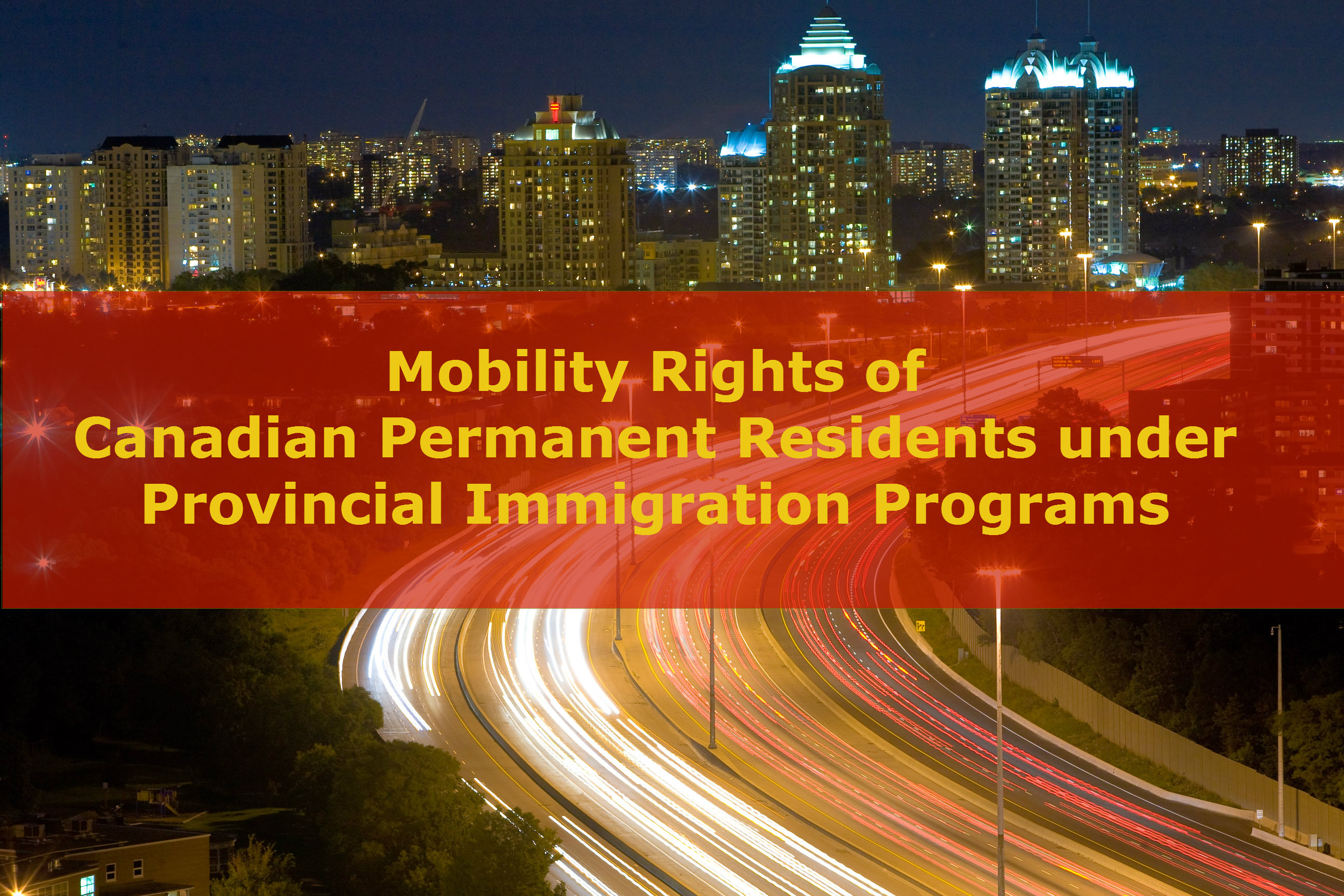051 8439995, 042 35911332

Canadian government allows an immigrant to relocate its province. This leads to a set of implications and obligations on the part of the applicant.
Canadian immigration department is regulated equally by Federal government and the provinces. Since the Quebec government’s acquisition of immigration rights for the province in 1978, all other provinces and territories have implemented their own immigration programs.
A number of people are applying for Canadian immigration through Quebec.
The Canadian Charter of Rights and Freedoms, section 6 or Canadian Charter or the Constitution Act, 1982 regulates the right to permanent residency at any province in Canada with the freedom to live and work there. It provides every Canadian citizen with:
- The right to enter, remain in and leave Canada
- The right to move to and take up residence in any province; and to pursue the gaining of a livelihood in any province.
Though section 6 is significant but in immigration matters, it is applicable only when permanent residency has been established.
On successful selection of a candidate by a Canadian province, the application is subjected for further processing by Federal department of Citizenship and Immigration (CIC) and Port of Entry (POE) in Canada. Both departments go through the admissibility concerns and issues regarding the candidate.
Immigration and Refugee Protection Regulations (IRPR), paragraph 87(2)(b) claims a foreign national to be a member of the PN class only if the candidate resides in the province that has nominated him.

Successful entry at POE allows the applicant to live and work in Canada under Charter Mobility Rights.
Provinces are working hard to invite and retain skilled immigrants through their immigration programs under this policy. This situation is most challenging especially for Quebec since it is the entry point for 20% immigrants.
The retention of skilled immigrants has also been a challenge for Manitoba, Saskatchewan, Nova Scotia and Prince Edward Island provinces.
POE ensures that the immigrants want to live and work in Canada. In case, the indication by POE is different, the candidates, may be reported under section A44 (1) for non-compliance with paragraph 87(2)(b) of the IRPR. In the worst scenario, if an applicant is found with an intention to never live in the nominated province, paragraph 40(1)(a) of the IRPA may cause serious allegations.
The Canadian residency policy is most flexible allowing the permanent residents to leave the country for 3 years, keeping their residency intact. It allows the applicants applying for Canadian immigration to decide on the province/territory they want to live in and work. This flexibility is protected under section 6 of the Charter.
If you are considering applying for Canadian immigration then provincial programs are a great help but you must comply with all the regulations under the Immigration Act.
